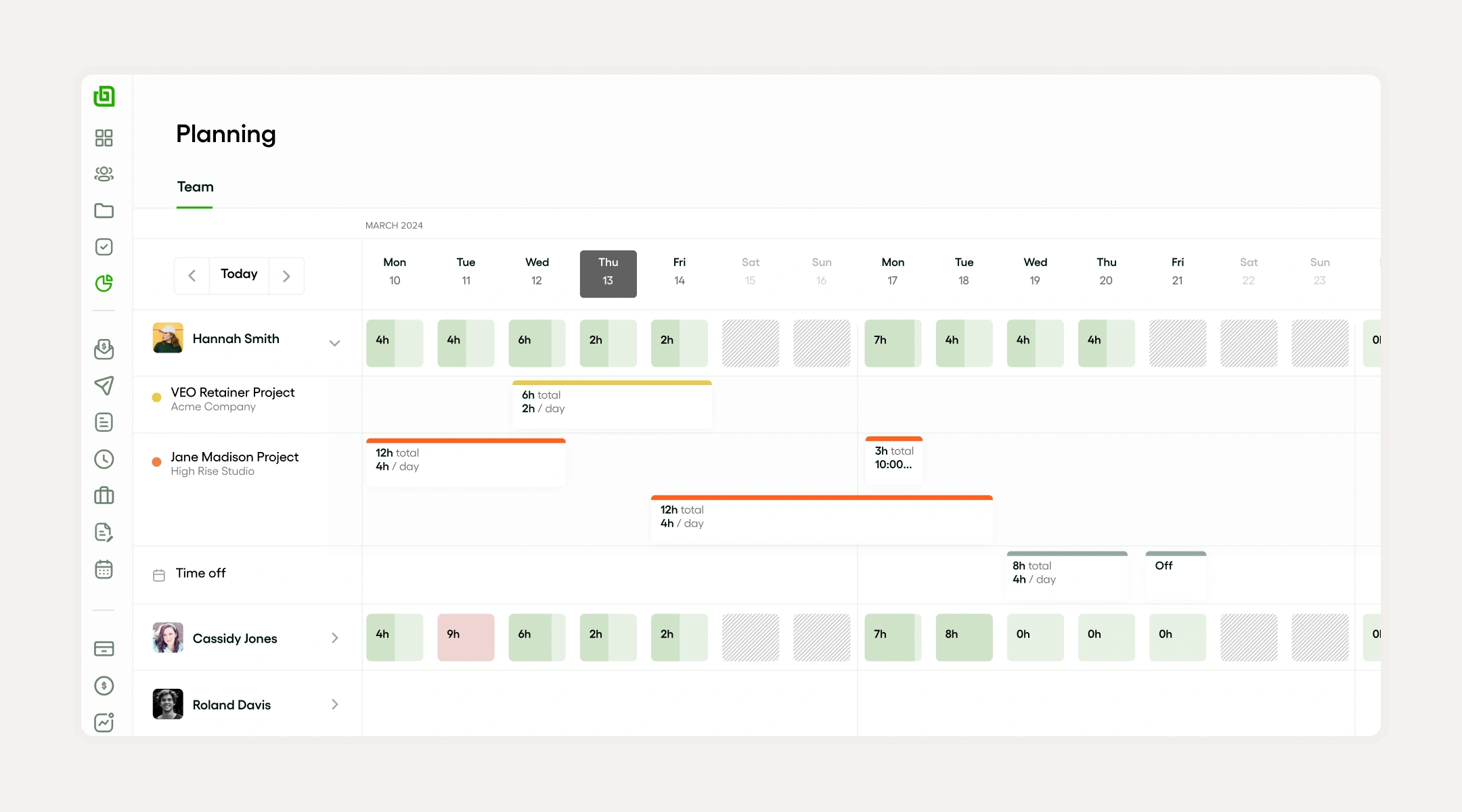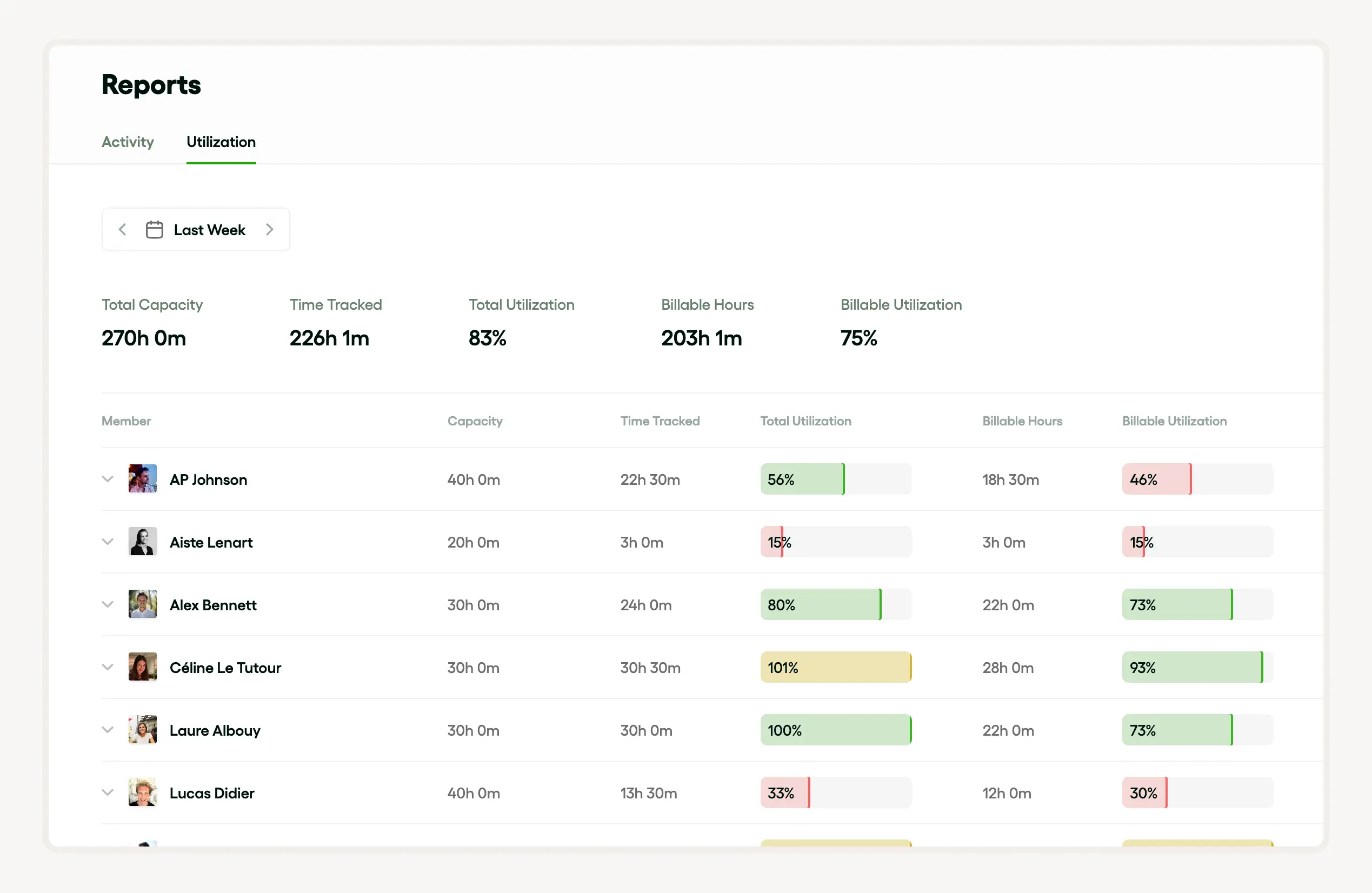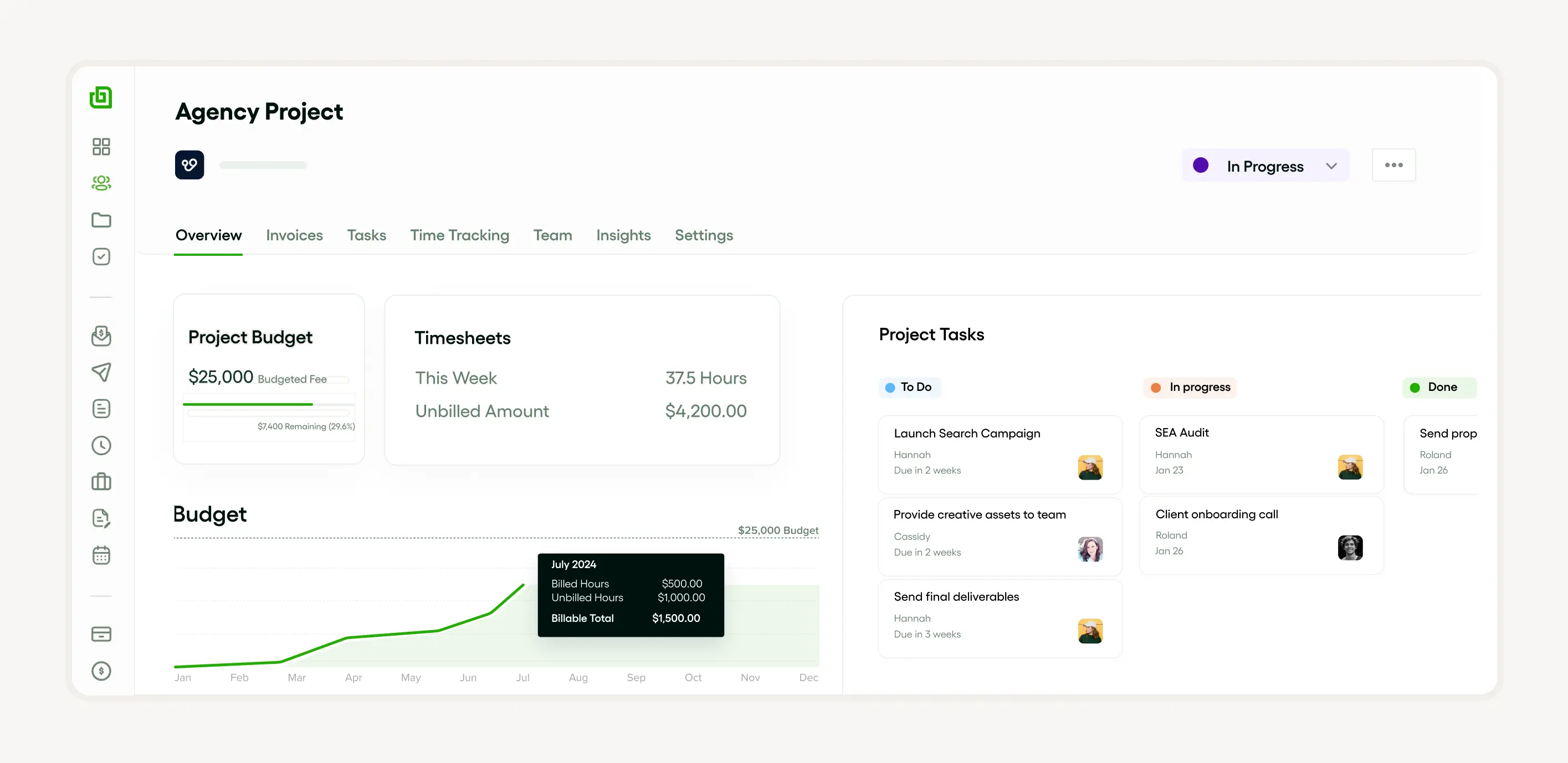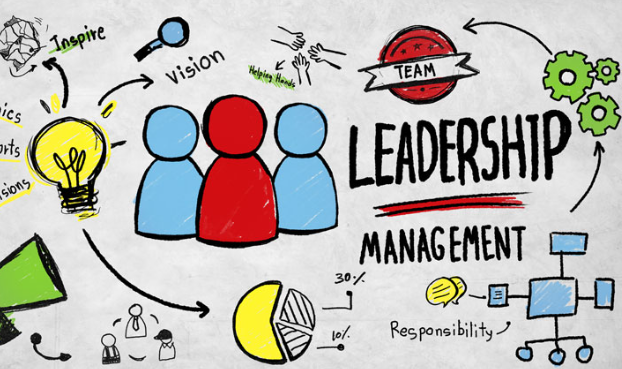Starting a project manager career means attaining the necessary project management skills and knowledge. Project management education starts with the acquisition of a bachelor’s degree. Some of the recognized certifications in the field of project management include the Project Management Professional (PMP) and the Certified Associate in Project Management (CAPM). It is crucial to gain professional project management experience. From a basic entry-level project manager to top management, effective project management experience enriches your understanding of methods and techniques.
Starting a project manager career means attaining the necessary project management skills and knowledge. Project management education starts with the acquisition of a bachelor’s degree. Some of the recognized certifications in the field of project management include the Project Management Professional (PMP) and the Certified Associate in Project Management (CAPM). It is crucial to gain professional project management experience. From a basic entry-level project manager to top management, effective project management experience enriches your understanding of methods and techniques.
Understanding the role of a project manager
In essence, a Project Manager is a central figure in the management of projects within an organization. They employ project management skills and practices to guarantee that projects deliver on set goals and timelines. In addition, on-the-job experience and a degree in project management or holding a Project Management Professional often improve their output. A clear career path for project managers may be developed from entry-level project manager jobs, gaining professional experience managing projects over time. Compliance with project management standards is expected of the holder of this position.
Key responsibilities of a project manager
Generally, a Project Manager’s role is to manage and coordinate the work of a project and guarantee that it fulfills its goals and is completed on time and within the provided budget. It involves ability on project management, and experience in project management, and may need one to possess a bachelor's degree in project management. Project Managers apply project management conceptual tools and proactive processes.

Through this, they can attain a Project Management Professional (PMP) or a Certified Associate in Project Management (CAPM). This role is essential in any organization and provides numerous opportunities to advance one’s career as a project manager.
Skills required for a successful project manager
In other words, a successful project manager needs to have a wide variety of skills that are associated with the project management process. This entails the ability to learn different project management methodologies, the ability to implement different project management practices depending on the nature of the project. However, a successful project manager must possess significant project management experience too. Such experience in entry-level project manager positions offers a strong foundation that in the future may be crucial for other assignments. Moreover, Certifications provide a boost to the believability and efficiency of a project manager. Having Certifications such as the Project Management Professional (PMP) or the Certified Associate in Project Management (CAPM) is well recognized and appreciated in the field.
Streamlining projects with Bonsai software
Managing projects can be a complex task, but Bonsai software simplifies the process by offering a suite of tools designed to streamline every aspect of project management. From planning and organizing to tracking and budgeting, Bonsai ensures that your projects run smoothly and efficiently.
If your role is a project manager, you have the ability to manage and supervise client relationships within your organization. This involves bringing in new clients, assigning appropriate tags for organization, inviting them to join your company portal, and archiving clients when necessary.
Lead and deliver projects efficiently, Here's the process:
1. Plan out people and resources
Effective resource management in project planning involves considering your team's skills and availability, and using workload planners to allocate tasks evenly. Setting clear project milestones enables you to track progress and maximize resource efficiency. Bonsai is a project management tool designed to streamline this process for you! Here's how to plan people and resources within Bonsai:
- Allocate tasks effectively and ensure your team is not overburdened.
- Keep track of all tasks and their progress.
- Set and achieve key milestones to keep your project on track.

2. Keep projects organized
Keeping projects organized is key to efficiency and success. Bonsai software centralizes project information and offers tools for managing time, tasks, and communication. This ensures all team members stay informed and aligned, leading to smoother execution and better outcomes.
- Monitor the time spent on tasks to improve productivity.
- Centralize all project-related information for easy access.
- Comments & Notifications: Facilitate communication and keep everyone updated.

3. Stay on-time and on-budget
Staying on-time and on-budget is essential for successful project management. Bonsai software provides robust tools for tracking budgets, deadlines, and time spent on tasks. By offering real-time insights and automated reminders, Bonsai helps you manage resources efficiently, ensuring projects are completed within the set timeframe and budget constraints.
- Keep an eye on your project budget to avoid overspending.
- Ensure all tasks are completed on time.
- Generate reports to analyze time spent and improve future project planning.

With Bonsai, you can manage your projects more effectively, ensuring that you stay organized, on schedule, and within budget.
Education and certification pathways
Most project managers start with a bachelor's degree in project management or similar field. At the very least, entry-level project manager roles can provide candidates with hands-on experience in how to manage a project. Typically, they will look to further their education and pursue certifications as they learn the best practices and methodologies of project management. The most common certifications are the CAPM for beginners and PMP for those with more experience. The skills of project management are forever growing and need to be increased through further education throughout the career of a PM.
Relevant degree programs
You might be best off studying project management at a bachelor's level if you want to grasp strong ground in methodologies and general practices. The program aims to provide experienced individuals with basic project management skills and real-life professional experience. It will come in handy when you list project manager job listings that focus on experience and skill. Some specialization involves working on getting certain types of certifications in the project manager career path such as:
- Project Management Professional (PMP)
- Certified Associate in Project Management(CAPM)
While these certifications are less universal in their acceptance, they show competency in entry-level project manager positions.
Importance of project management certifications
Having a Project Management Certification improves the skills of the project manager and creates new routes on the project manager career ladder. Such global certifications indicate professional project management experience and overall knowledge of project management processes and standards. A prospective employer commonly seeks these certifications in project manager job advertisements as they lend authenticity to the experience of an applicant. Secondly, a bachelor's degree in project management or any other project management education may prove viable for entry-level project manager jobs.
Top project management certifications: PMP, PRINCE2, and CAPM
The most popular certifications are:
- Project Management Professional (PMP)
- PRINCE2
- The Certified Associate in Project Management (CAPM)
These affirm one’s competency in project management and make one stand out among other applicants in the project manager job offerings. Gaining all these credentials requires a combination of formal education in project management, practical experience in project management, and knowledge of project management methodologies. As for PMP and PRINCE2, these certificates are aimed at experienced programmers while CAPM provides the first step on the career ladder for junior project managers. Regardless, if you are gearing up for the project manager career or aiming to enhance the recognized status, these certifications are inevitable.
Building relevant experience
Having earned a bachelor’s degree in project management, I learned the various aspects of project management and the various project management methodologies. This academic background has laid a foundation for my professional project management experiences. I’ve worked in several beginning project manager positions where I successfully used these methodologies and project management techniques. Due to my commitment to the project manager career, I obtained the Project Management Professional (PMP) certificate. This certification also helped me build my project management skills further. It also made me fit into many project manager positions. I am in the process of studying for the CAPM to increase my educational base.
Starting with entry-level positions
From the initial positions of project manager, people accumulate valuable experience in professional project management. Most job postings require new hires to have integrated project management into their academic curriculum or have a PMP or CAPM certification acquired through education such as a bachelor’s degree in project management. Knowledge of project management types and strategies creates a foundation for a progressive project manager career track. It is recommended to obtain a Project Management Professional since it acknowledges one’s advanced understanding and dedication to this line. It, in turn, results in more employment and possibly higher wages.
Importance of internships and volunteering
Internships and volunteering are opportunities to learn some project management skills and get a taste of what it would be like working as a professional in the field. Through these, the participants are allowed to use their project management methodologies. Plus, it allows them to learn about Project Management best practices and be industry-ready for entry-level positions as a Project Manager. They are also a vital step in the project manager career path as they may meet requirements for Project Management Professional (PMP) or Certified Associate in Project Management (CAPM) certification. Inarguably, real hands-on learning will be a great addition to perhaps your bachelor's in project management or further education with project management principles.
Mastering essential project management tools
When it comes to constructing a successful career path as a project manager certain fundamental tools should be mastered. These combined with a bachelor’s degree in project management make you have improved project management tools. Earning professional project management experience makes you stand out in project manager job advertisements. Certain guidelines for project management recommend that one should seek project management certifications.
The Project Management Professional (PMP) and Certified Associate in Project Management (CAPM) are globally recognized certifications that may help you qualify for even an entry-level project manager role. Last, but not least, the awareness of project management methodologies and a sound basis of project management education are required. These will prepare you for dealing with various tasks in your employment.
The role of Bonsai
Bonsai is an essential tool for project management, streamlining workflows, and increasing productivity. Designed for professional service providers, business owners, and creative professionals, it provides a variety of features to effectively manage projects.
- Bonsai CRM centralizes contact management, allowing users to track leads, clients, and notes in one place.
- It organizes projects with documents, payments, tasks, and timesheets, ensuring easy access.
- The CRM also automates workflows, sending reminders and following up on unpaid invoices to save time and streamline processes.

Bonsai allows for the automation of repetitive tasks, tracking project progress, and seamless integration with tools like Google Calendar and Calendly. This integration ensures that all tasks and schedules are aligned, reducing the risk of missing deadlines. By providing visibility into projects and automating daily tasks, Bonsai helps maintain organization and focus on important tasks.
Understanding Microsoft Project
Microsoft Project as a project management student, taking up this course is an excellent move for everyone interested not only limited to those already pursuing and have gotten a Bachelor's Degree in Project Management but also looking forward towards professional certifications. Microsoft Project is used in various industries to put into practice project management best practices, learn about project management methodologies and be prepared for roles that are listed on the job profile. Mastering this tool is what turns an entry-level project manager into someone with professional experience in the field of professional project management.
Getting to grips with Trello
As a career starter in project management, you need to understand the methodologies used in tools such as Trello. The good thing about this is it develops your project management competencies, and at the same time builds your professional project management experience.

Trello should be beneficial for applying specific strategies associated with effective project management. However, it can be of great use if added to a PMP or CAPM exam preparation as it gives practical knowledge. Whether you are looking for project manager positions or aim to map out your career in becoming a project manager, Trello experience puts you in a better state.
Benefits of using Asana
With Asana, project management becomes easier. Because it comes with a neat and intuitive task-tracking system to help you keep up-to-date tasks in your team. Because it gives users features that are in line with best practices for project management. Moreover, they have the tools to take care of any type of project manager job listing. And, using all of Asana's features can further go hand-in-hand with project management education and enhance a professional-level experience in managing projects. Asana could be employed irrespective of the project management methodologies to achieve faster workflow and productivity.
Developing key soft skills
A good project manager career path requires strong soft skill development. Obtaining a Bachelor's in Project Management or pursuing and earning your PMP (Project Management Professional) certification will specifically improve these skills.

Learn various project management methodologies and practice relevant project management to succeed in this industry. After that keep following the project manager entry-level positions as they increase professional jobs in the field of project management. Take a look at project management job listings. By this, you will get an idea of what hiring corporations expect and require from applicants in order to round off your competencies.
Importance of communication skills
The most crucial activity a project manager can engage in is communication and this is because it establishes and builds relationships within a project team. Typically, one could pursue and obtain a degree in project management, such as a bachelor’s degree, and this is relevant. Note that it is equally crucial to learn, understand, and successfully apply the communication aspect of project management best practices.

Additionally, project management experience includes managing people to deliver. Thus, communication factor is a crucial step that can be obtained through professional project management experience and Project Management Professional certification. They help in the enhancement of the project management methodologies within the project environment. Indeed, communication is especially highlighted in the requirements for the project manager's employment.
Leadership and team management
Leadership and team coordination are two of the core competencies that can inspire your project’s success. It is common for employers to look for individuals with experience in project management, who possess a PMP or a CAPM certification. When searching for project manager positions, common requirements usually include a bachelor’s degree in project management or a related field; an understanding of various project management methodologies; and relevant project management experience.

Such academic credentials combined with the understanding of project management methodologies acquired through education or on-the-job learning can be useful in your career advancement on the project manager career ladder.
Problem-solving and decision-making abilities
It is obvious that gaining problem-solving or decision-making skills is crucial for an individual who wishes to pursue a project manager career. Such skills are developed by observing a pattern of education qualification at the bachelor’s level in project management, years of project management experience and several certifications.

First and foremost, certain licenses like Project Management Professional (PMP) or Certified Associate in Project Management (CAPM) should be mentioned. They also enhance one’s knowledge and experience regarding various project management methods and frameworks. They are also usually included as a list of requirements that potential project managers need to possess. It is widely accepted that an impressive education combined with some project management experience increases the chances of a fulfilling career in project management.
Continuing professional development
Continuing Professional Development is an integral part of a successful project manager career path. A Bachelor's in Project Management could really take your project management skills to the next level. Yet, to gain more in-depth project management experience a further project management education via Project Management Professional certification or Certified Associate in Project Management (CAPM) must be acquired. It is also important that you stay current with the newest project management methodologies and best practices. Knowing this can be useful, especially for project management positions at the entry-level and when you find a job posting with such an experience mentioned.
Keeping up with industry trends
To give your project management abilities and PM expertise a boost you need to stay updated with the latest industry trends. Another way to stay on top of trends is by continuing your project management education– earning a bachelor's degree in project management or obtaining certifications likewise:
- Project Management Professional (PMP)
- Certified Associate in Project Management

Regular scans of project manager job listings and knowledge of the best practices for this career may help clue you into what employers look for. It also assists in developing the right career path as a project manager.
Networking and professional associations
Professional associations, as well as networking groups, offer great resources and networks that would help to improve your skills in project management. This can be done by going to industry events, seminars and webinars where you will learn proven best practices and methodologies of project management. In addition, these platforms offer students mentorship and access to a pool of mentors who are skilled in certain areas. One thing to add, Networking can also cultivate insights into unadvertised project manager job listings. A large number of project manager roles demand a bachelor's level in task administration. They also require additional qualifications in Project Management Professional (PMP), or an equivalent in something similar such as CAPM (Certified Associate in Project Management). You need to have some professional project management experience directly linked with the effort, if you are making your career as a Project Manager. They also have important project management assets (including various degrees in project management).
Transitioning into a project management role
Moving up to a project management role can be great for your work life, even if it feels like getting lost in limbo some of the time. This profession usually involves developing critical project management skills from both formal instruction and practical experience in Project Management. People must have a good working knowledge of project management methodologies and can get that through entry-level positions as a Project Manager. Moreover, adding a project management certification such as Project Management Professional (PMP) or Certified Associate in Project Management (CAPM)on top of your professional level experience can increase your starting salary and visibility among project manager job listings. Together, this combination of education and experience is building a successful road to becoming the best project manager possible.
Creating a compelling resume
A well-crafted resume is a project manager’s first essential tool in this career path. Make sure to add your project management skills, flash your project management experience and don’t forget to mention the relevant qualification. For example, if you have received a bachelor’s degree in project management, you should mention this in your resume. Also, common credentials like Project Management Professional and Certified Associate in Project Management make you stand out in a project manager job listing. It also may be wise to include the project management methodologies you’re proficient in and the project management best practices you follow.
Acing the project manager interview
To land a project manager role you need to have certain skills in terms of project management, along with hands-on experience in managing projects. A great candidate would have a PMP or CAPM certification. Related educational experience can also be a significant competitive advantage. Also, just a friendly reminder that not all project manager job listings are the same; some may be searching for in-depth knowledge of particular PM methodologies or experience with industry-specific PM best practices. This is why continuous learning and adaptability are important behaviors in this industry.
Conclusion: The path to becoming a successful project manager
Overall, the journey to being a good project manager starts with learning quality developed project management skills and obtaining solid professional experience. This could be possible from an entry-level job as a Project Manager. You can make a more attractive applicant for project manager job listings and speed up your career path as a project manager by earning certifications according to the PMI. Good for you if you have earned them in conjunction with a bachelor's degree in construction management. Don't forget to incorporate project management best practices and stay informed on the latest project management methodologies.







